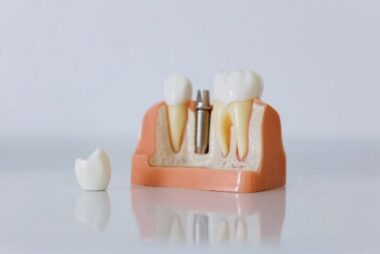What to Expect During Your Dental Implant Procedure
Are you considering dental implants but unsure what to expect? You’re not alone. Many people find this innovative solution for missing teeth both intriguing and a bit intimidating. Dental implants are more than just replacements; they offer a permanent way to restore your smile, boost confidence, and improve functionality. As you embark on this journey toward oral health, it’s essential to understand what to expect, how to prepare, and what recovery looks like when getting dental impants. This guide will walk you through each step so that you’re informed and ready for your dental transformation.
The Required Preparation

Preparing for your dental implant procedure involves a few essential steps. First, schedule a consultation with your dentist to discuss your health history and expectations. This meeting is crucial for understanding the process. Next, if you’re on any medications, inform your dentist. Certain drugs may need to be adjusted before the surgery. It’s also wise to arrange transportation home post-procedure since sedation might affect your ability to drive. Additionally, consider dietary changes in the days leading up to the appointment. Eating soft foods can help ensure that you’re comfortable after the procedure, when you’ll likely experience some swelling or discomfort.
The Procedure Step-by-Step

The dental implant procedure begins with a thorough examination. Your dentist will take X-rays to assess bone health and plan the placement of the implant. Next, you’ll receive anesthesia to ensure comfort throughout the process. Once you’re numb, the dentist carefully creates an opening in your jawbone for the implant. The titanium implant is then inserted into this space. After placing it securely, your gums are stitched up to promote healing around the new fixture. A healing period follows, often lasting several months as the bone fuses with the implant in a process called osseointegration. This integration is crucial for stability. Once healed, you’ll return for another appointment with an abutment attached to connect your custom crown. The final step involves fitting and adjusting that crown so it blends seamlessly with your natural teeth.
Recovery and Aftercare

After your dental implant procedure, proper recovery is key to successful integration. Initially, you may experience some swelling and discomfort. This is normal and can be managed with prescribed pain medication. Resting for the first few days post-surgery is crucial. Avoid strenuous activities that might disrupt healing. Instead, focus on gentle movements and relaxation. Your dentist will provide specific aftercare instructions. These may include dietary recommendations such as sticking to soft foods in the early stages. Hydration also plays a vital role; sipping water aids recovery without disrupting your implants. Maintaining oral hygiene remains essential during this period. Gently brush around the surgical site while avoiding aggressive techniques that could cause irritation or bleeding. Regular follow-up visits are necessary to monitor healing progress and ensure everything is on track for optimal results.
Dental implants can transform your smile and boost your confidence. Understanding the entire process from preparation to recovery helps ease any anxiety you might have. Taking care of oral health before and after the procedure is crucial for a successful outcome. With proper care, dental implants can last many years, providing you with a reliable solution for missing teeth. If you’re considering this option, gather information and consult with an expert who can guide you through each step …

